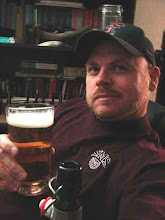 Why do creationists attack evolutionary theory? This may seem a silly question, at least to those embroiled in battle, but even if evolution could be debunked, this would not prove a literal creation event as recounted in Genesis. This seems to me to be a pointless exercise; after all, there seems to be enough work for proponents of literal creation to do to persuade other Christians that a literal creation event occured - let alone all the other theists (ie Jews, Hindus, Muslims, etc.). Why do they attack evolution?
Why do creationists attack evolutionary theory? This may seem a silly question, at least to those embroiled in battle, but even if evolution could be debunked, this would not prove a literal creation event as recounted in Genesis. This seems to me to be a pointless exercise; after all, there seems to be enough work for proponents of literal creation to do to persuade other Christians that a literal creation event occured - let alone all the other theists (ie Jews, Hindus, Muslims, etc.). Why do they attack evolution?Certainly proposing that creation be taught in the science classroom is asinine; even most creationist must see that it is not science. Intelligent Design theory seeks to incorporate science and religion but still cannot offer a testable hypothesis - a requirement for science. This should not be a surprise as religion and science have different methods for discovering 'truth' and both have different purposes in applying these 'truths.'
For instance, consider the category of time. Both science and religion define and struggle with such a complex human construct. In the past, the border between science and religion was more blurred in some cultures (Myan, Sumerian, etc.) but I will focus on modern science and modern fundamentalist Christianity that is most likely to assert a literal creation as portrayed by their interpretation of Genesis. Essentially, science approaches time diachronically while religion approaches time synchronically.
 Synchronic time is concerned with specific events, of both the past and the future, and are tied to specific locations. This is a topic for a future post but basically this view of time conveys a sense of 'timelessness' or 'the eternal now.' The image to the left depicts an 'axis mundi' or an event in which the divine occurs and "a region impregnated with the sacred, a spot where one can pass from one cosmic zone to another" [1]. Here, a believer can often enter into an event outside of time or at one point of time that may have or may yet happen (ie Catholic Eucharist, The Great White Throne Judgement, Zion, etc.). Synchronic (eternal or sacred) time is usually seen as being recursive and outside of 'real' (diachronic or profane) time. This notion of time is central to most professions of fundamental Christianity.
Synchronic time is concerned with specific events, of both the past and the future, and are tied to specific locations. This is a topic for a future post but basically this view of time conveys a sense of 'timelessness' or 'the eternal now.' The image to the left depicts an 'axis mundi' or an event in which the divine occurs and "a region impregnated with the sacred, a spot where one can pass from one cosmic zone to another" [1]. Here, a believer can often enter into an event outside of time or at one point of time that may have or may yet happen (ie Catholic Eucharist, The Great White Throne Judgement, Zion, etc.). Synchronic (eternal or sacred) time is usually seen as being recursive and outside of 'real' (diachronic or profane) time. This notion of time is central to most professions of fundamental Christianity.  Science is not concerned with sacred time but is obsessed with diachronic observation of time. The speed of light, the revolution of planets, the division of hours, and so on are defined by the direct observation of events in a natural world. Sometimes the vast periods of time boggle the mind - who can truly understand 14 billion years? - and the natural world is explained through eras. Even these are based on empirical observation and collected or demarked in such a way as to build a diachronical timeline.
Science is not concerned with sacred time but is obsessed with diachronic observation of time. The speed of light, the revolution of planets, the division of hours, and so on are defined by the direct observation of events in a natural world. Sometimes the vast periods of time boggle the mind - who can truly understand 14 billion years? - and the natural world is explained through eras. Even these are based on empirical observation and collected or demarked in such a way as to build a diachronical timeline. My point is that science is based on the observations of a natural world while religion (in general) and fundamental Christianity (in specific) is concerned with sacred events that occur outside of diachronic time. Sacred time events cannot possibly be tested by observation - they are outside of this category. Why would creationists subject sacred ideas to profane scientific scrutiny even if this were possible? Can a literal creation event performed by a supreme being be tested and possibly falsified through direct observation?
Suggestions to Literal Creation Proponents:
1. Focus on promoting your beliefs to other theists; this is the proper arena
2. Leave science in the science classroom; it cheapens religious beliefs to center them in 'profane' time
3. Incorporate ID into religious epistemology but do not subject it to falsification
My next post will concentrate on Skeptical strategies to talk with literal creationists.
-Safari Bob
References
[1] Eliade, M. (1996). Patterns in Comparative Religion. Rosemary Sheed, trans. Lincoln, Nebraska: University of Nebraska Press, pp. 99-100.






No comments:
Post a Comment